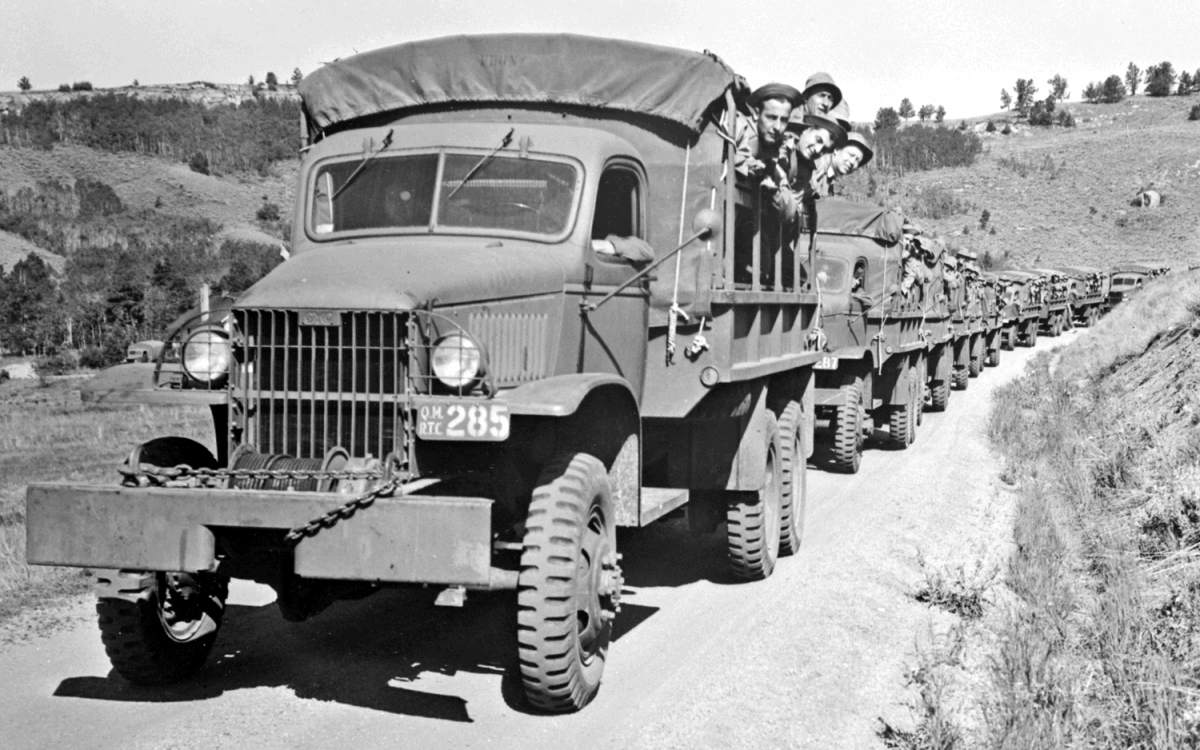[Supplying a moving force can be a hit or miss proposition.]
We crossed a small but fast running river several times as we wound our way out to the front. Most standing vehicle bridges were temporary ones laid down by American engineers. We passed several small foot bridges, ancient structures of classical oriental design and ornamentation. Their limited capacity was all that had saved them from bombardment or sabotage as the land around them was contested.
Corporal Shanahan gunned his engine to push us around or through patches of mud on the abused road. We neared Miyanojo from the south as I noticed fresh columns of smoke on the small mountain to our right. The steady rain, which had started two days before, would put them out quickly, but just then the hill was still being fought over.
Engineers and artillery men were already working to push big guns up to the marginally secure near end of the mountain’s long top. Saws and bulldozers cleared steep lanes while trains of tractors were chained together three at a time to pull one gun at a time up the wet slope.
We approached the outskirts of the city proper and were immediately pointed down a small side street to clear the main road. A steady stream of vehicles came through the other way, moving out of the town to the southwest. Finally a quartermaster man approached to find out what we had and to send us somewhere useful.
The 8th Marines had spent all the previous day fighting into the city. They got to the river which divides Miyanojo and found all its bridges gone. Any reasonable place to ford or place a temporary bridge was targeted by Japanese artillery. In fact, every part of the plain holding the city and its adjoining towns was vulnerable to fire from big guns hidden in mountains that push up abruptly about eight miles north.
Most of the 8th Marines was going to move back some and try to circle around on the left, under cover of some smaller hills. The 6th was to continue fighting from hilltop to hilltop on the right. We were directed to a new supply dump back a bit, between the rears of both regiments.

